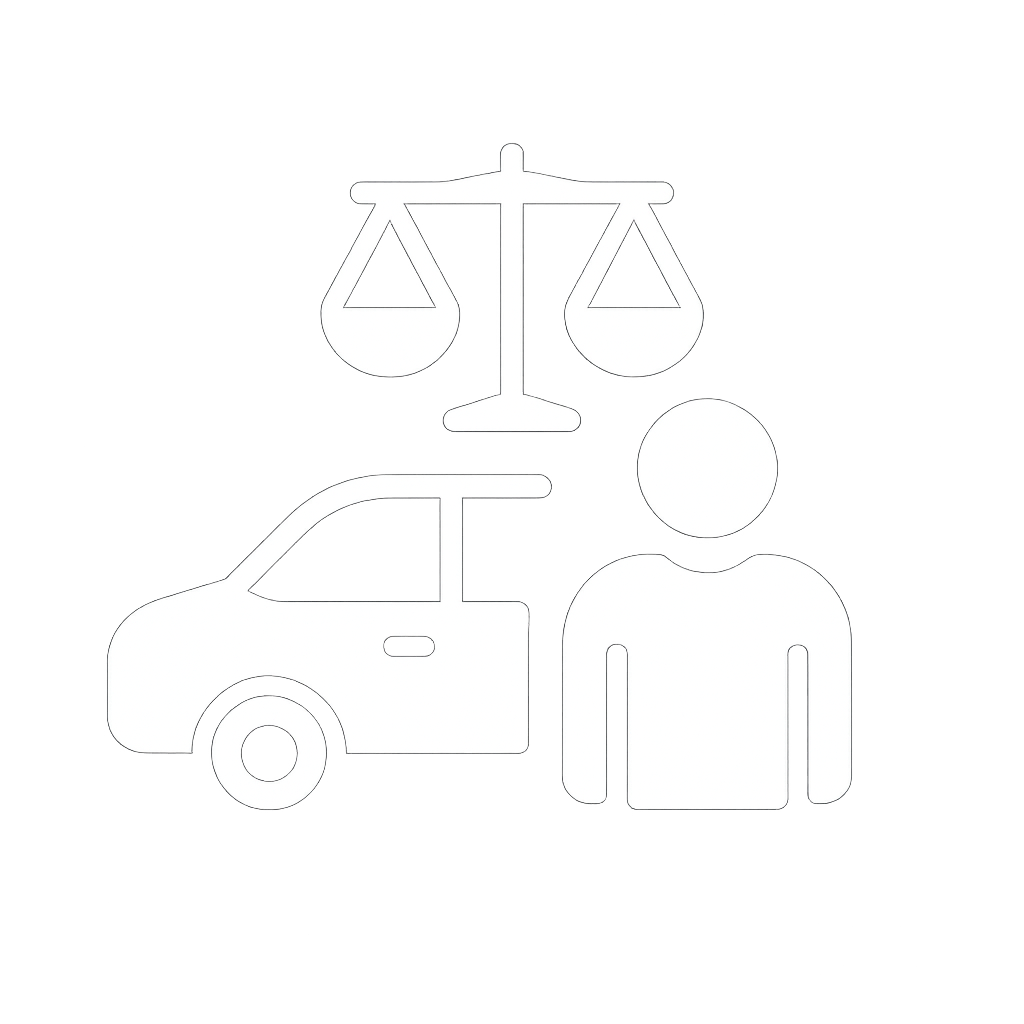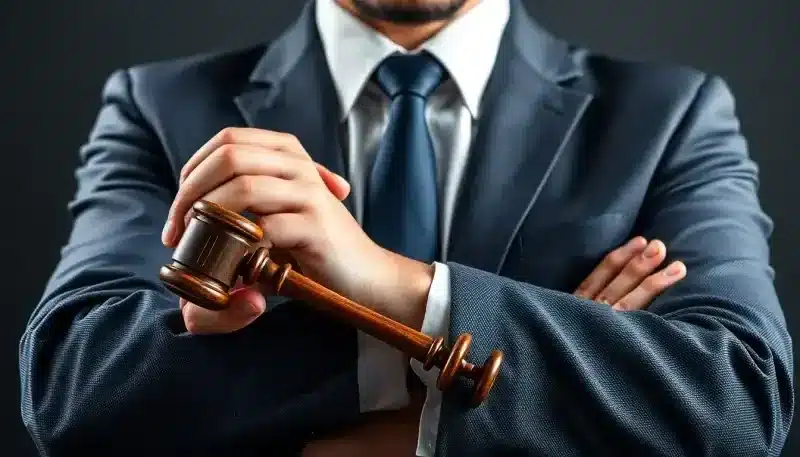Experiencing an accident can be a life-altering event, leaving you grappling with physical injuries, emotional distress, and unexpected financial burdens. In such turbulent times, searching for a personal injury lawyer near me can feel overwhelming. However, the choice you make regarding legal representation is crucial, as it can significantly impact your recovery and future well-being.
Understanding the role of personal injury lawyers, the steps to take immediately after an accident, and how to select the right attorney can empower you to make informed decisions. This guide offers an in-depth look into why local representation matters, what to expect during the legal process, and how to maximize your compensation.
Why finding a local personal injury lawyer near me is essential
When it comes to personal injury cases, hiring a local lawyer offers more than just convenience. It provides legal advantages that can significantly influence the outcome of your case.
Key Advantages of Hiring a Local Lawyer:
- Familiarity with Local Laws and Procedures: Local lawyers possess knowledge of specific laws, statutes, and local court procedures, which can be pivotal in your case.
- Established Relationships: They often have established relationships with judges, court personnel, and local medical experts, facilitating smoother negotiations and case resolutions.
- Accessibility: Local representation allows for quick in-person meetings, enabling your lawyer to respond promptly to urgent matters.
- Community Reputation: A lawyer well-regarded in the community is likely to fight harder for your case to uphold their reputation.
Ultimately, choosing a local personal injury lawyer can be the difference between a favorable settlement and a lengthy legal battle.
Understanding the role of a personal injury lawyer
Many people underestimate the extensive responsibilities of personal injury lawyers. Their role encompasses a wide array of tasks designed to build a strong case on your behalf:
- Thorough Investigation: Lawyers conduct investigations to gather evidence, such as accident reports, witness testimonies, and medical records.
- Evidence Preservation: They ensure that crucial evidence is preserved, such as photographs of the accident scene or surveillance footage.
- Damage Assessment: Lawyers calculate the full extent of damages, including medical expenses, lost wages, and emotional suffering, to help determine fair compensation.
- Insurance Negotiation: They negotiate with insurance companies to secure the best possible settlement, countering tactics meant to minimize payouts.
- Litigation Preparation: If a fair settlement isn’t reached, they prepare your case for trial, which involves extensive documentation and evidence gathering.
With effective legal representation, you can navigate the complexities of personal injury claims with confidence.
Essential steps to take immediately after an accident
Taking prompt and appropriate action after an accident can significantly impact the success of your claim. Here are the critical steps to follow:
- Seek Immediate Medical Attention: Your health should be your top priority. Even if you feel fine, some injuries may not manifest immediately.
- Document the Scene: Take photographs of the accident scene, including any damages and your injuries, to create a record of the event.
- Gather Witness Information: Collect names, contact numbers, and statements from any witnesses present at the scene.
- File a Police Report: Contact law enforcement to report the accident, especially if injuries occurred or if it’s a significant property damage incident.
- Limit Communication: Avoid discussing details of the accident with insurance adjusters until you have legal representation.
- Preserve Physical Evidence: Keep any physical evidence related to the accident, such as damaged clothing or faulty products.
Your actions immediately following the accident can lay the foundation for a strong claim.
How to choose the right personal injury lawyer near me
Choosing the right lawyer can be daunting, but following these guidelines can help you make an informed decision:
1. Seek Specialized Experience: Focus on lawyers who specialize in personal injury law rather than those who handle a broad range of legal issues.
2. Review Their Track Record: Investigate the lawyer’s history of settlements and verdicts to gauge their effectiveness in handling cases similar to yours.
3. Analyze Client Reviews: Use platforms like Google and Yelp to read reviews from previous clients. Look for patterns, especially regarding communication and outcomes.
4. Conduct Multiple Interviews: Take advantage of free consultations to meet with several lawyers. Trust your instincts regarding their professionalism and empathy.
5. Ask Informed Questions: Prepare a list of questions to gauge their experience, such as:
- How many cases like mine have you successfully handled?
- What will your communication process look like?
- What are the potential outcomes of my case?
A good lawyer will be open to your questions and transparent about their process.
Identifying red flags when selecting a lawyer
Not every lawyer is trustworthy—be vigilant and watch for these warning signs:
- Guaranteed Outcomes: Any lawyer who guarantees a specific settlement amount is likely being disingenuous.
- Unclear Fee Structures: A reputable lawyer should explain their fees upfront without hidden charges.
- Pressure to Sign: If a lawyer rushes you into signing agreements, it’s a red flag.
- Lack of Trial Experience: If your lawyer has never taken a case to trial, you may be at a disadvantage during negotiations.
- Negative Online Feedback: Consistent negative reviews can indicate deeper issues with the lawyer’s practice.
Choosing the wrong lawyer can have detrimental consequences for your case. Take your time to find the right fit.
What to expect after hiring a personal injury lawyer near me
Once you hire a personal injury lawyer, your case will follow distinct stages:
Step 1: Case Evaluation and Strategy Development
Your attorney will review all relevant documents and evidence, crafting a strategy tailored to your situation.
Step 2: Negotiation with Insurance Companies
Your lawyer will submit a demand package to the insurance companies, outlining the value of your claim and initiating settlement negotiations.
Step 3: Filing a Lawsuit (if necessary)
If negotiations fail, your lawyer will file a lawsuit, initiating formal legal proceedings and engaging in discovery, where evidence is exchanged.
Step 4: Trial Preparation
Should your case proceed to trial, your attorney will prepare thoroughly, gathering expert witnesses and building a compelling narrative for the jury.
Common types of cases that personal injury lawyers handle
Personal injury lawyers are equipped to manage a variety of cases, including:
- Car Accidents: Including collisions caused by distracted or impaired driving.
- Truck Accidents: Often involving larger commercial vehicles and unique liability issues.
- Motorcycle Accidents: Typically resulting in severe injuries due to the lack of protection.
- Slip-and-Fall Accidents: Common in public places where safety regulations are not followed.
- Dog Bites: Cases often involve liability issues surrounding pet ownership.
- Workplace Injuries: Claims involving accidents on job sites or due to unsafe working conditions.
- Defective Products: Cases involving injuries caused by unsafe or defective consumer products.
- Wrongful Death: Claims filed on behalf of deceased individuals due to another’s negligence.
Each type of case requires specific legal strategies and expertise.
How personal injury lawyers maximize settlements
Experienced personal injury lawyers employ various strategies to ensure you receive the compensation you deserve:
- Strong Medical Documentation: They gather comprehensive medical records to demonstrate the extent of your injuries and future care needs.
- Expert Testimonies: Involving medical professionals and economic experts can substantiate your claims and bolster your case.
- Identifying Bad Faith Practices: Lawyers can expose any unfair tactics from insurance companies that may warrant punitive damages.
- Trial Readiness: Being fully prepared for trial enhances settlement negotiations, as insurers know you are serious about pursuing your case.
The more prepared your lawyer is, the better the chances of achieving a favorable settlement.
Common tactics insurance companies use against you
Insurance companies are often more focused on their profits than your well-being. They may employ various tactics to undermine your claim:
- Shifting Blame: Insurers may try to place blame on you for the accident to reduce their liability.
- Minimizing Injuries: They often downplay the severity of your injuries to justify lower settlements.
- Delaying Payments: By procrastinating, they hope you will settle for a lesser amount out of frustration.
- Surveillance Tactics: They may monitor your social media or hire private investigators to gather damaging evidence against you.
An adept personal injury lawyer can effectively counter these tactics and advocate for your rights.
How much compensation can you expect?
Compensation amounts vary based on several factors, including:
- The severity of your injuries and their impact on your life.
- Total medical expenses incurred due to the injury.
- Projected future medical needs and care requirements.
- Lost wages and diminished earning capacity due to the accident.
- Pain and suffering, including emotional distress.
Typical settlement ranges can vary widely based on these factors, and your lawyer’s role is to maximize compensation across all categories.
How long do you have to file?
Each state imposes strict time limits known as statutes of limitations for filing personal injury claims:
- Texas: Generally, you have 2 years to file a claim for most personal injuries.
- Government Claims: Claims against governmental entities often have a much shorter window, commonly around 6 months.
- Medical Malpractice: These cases can be complex and vary widely based on specific circumstances.
It is crucial to act quickly, as delays can jeopardize even the strongest cases.
Extended FAQ Section
Q: Should I go to the hospital even if I feel okay after an accident?
Yes, certain injuries may not show symptoms immediately, and a medical evaluation is prudent.
Q: Can I still sue if I was partly at fault?
Yes, many states utilize “comparative negligence,” meaning you can still recover damages, though they may be reduced based on your level of fault.
Q: What if the other driver has no insurance?
You can still potentially recover damages through uninsured motorist coverage or other means.
Q: How long does the average case take?
Cases typically settle within 6 to 12 months, while litigation can extend beyond 2 years.
Q: Do personal injury cases usually go to court?
No, over 90% of personal injury cases settle before reaching trial.
Q: What happens if I switch lawyers midway?
You can switch lawyers at any time, but be aware of any outstanding fees or agreements with your previous lawyer.
Q: How are attorney fees calculated?
Most personal injury lawyers charge around 33% to 40% of the total settlement amount.
Q: Will my settlement be taxed?
Typically, settlements for physical injuries are not subject to taxation.
Final thoughts: Don’t just Google “injury lawyer near me” — choose smart
While searching for a personal injury lawyer is a crucial step, taking the time to evaluate your options thoroughly can make all the difference. Look for lawyers with proven trial experience, a commitment to client communication, and a strong record of securing significant results. A qualified personal injury lawyer will advocate for your rights, seeking maximum compensation and ensuring peace of mind during one of life’s most challenging moments.
Start your search today to pave the way for recovery, justice, and a brighter future.

